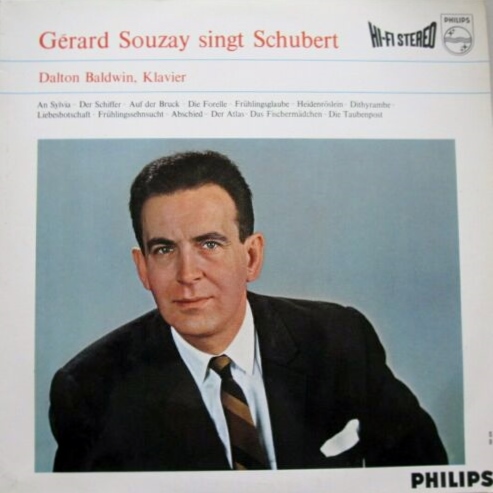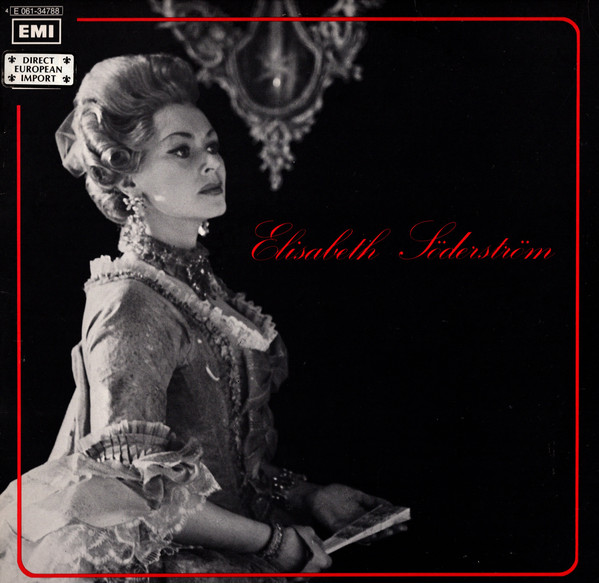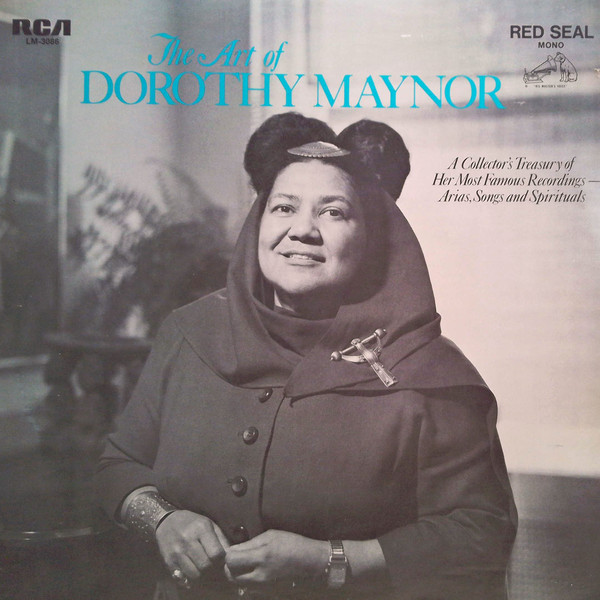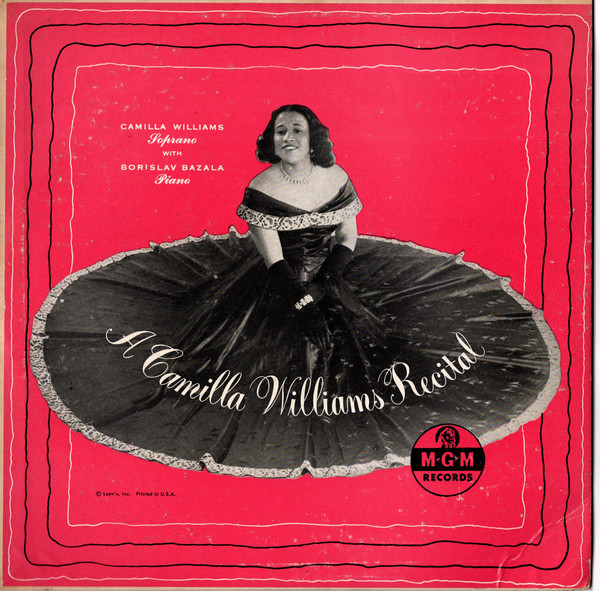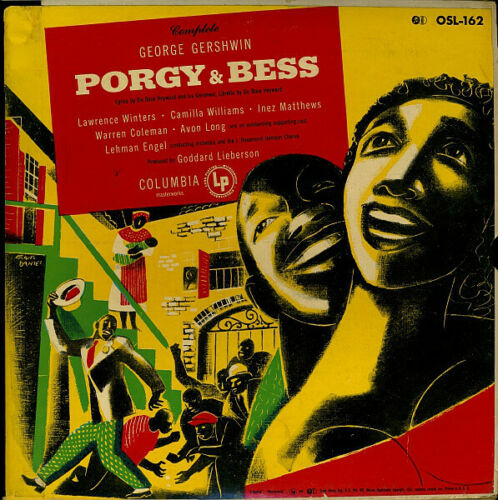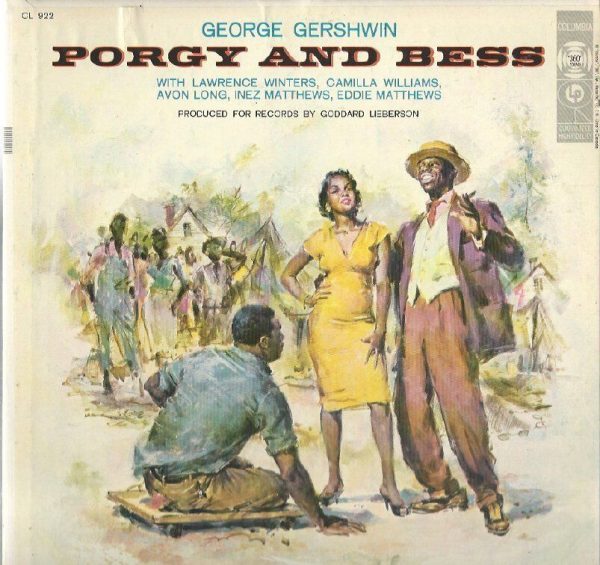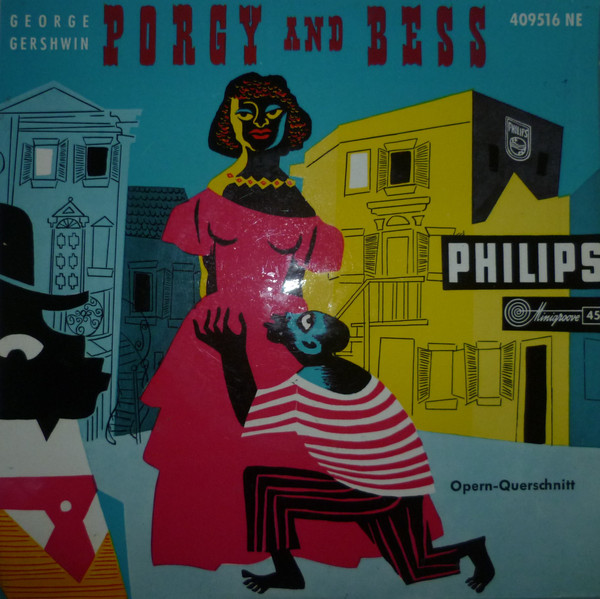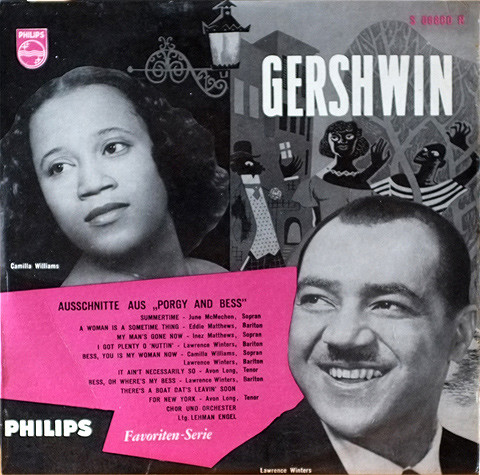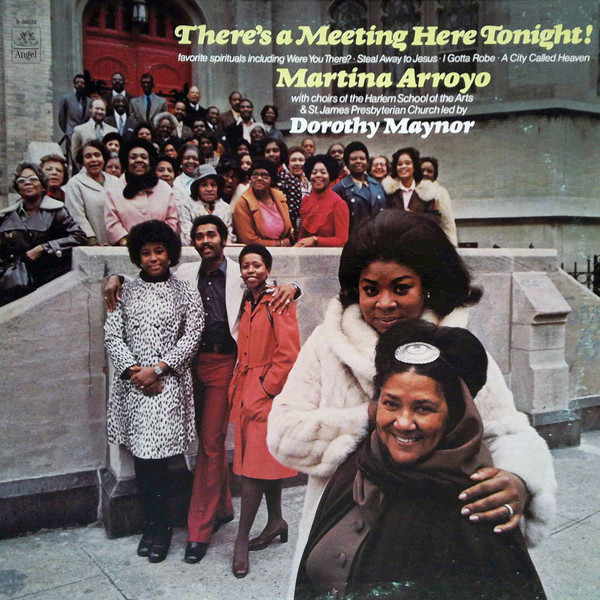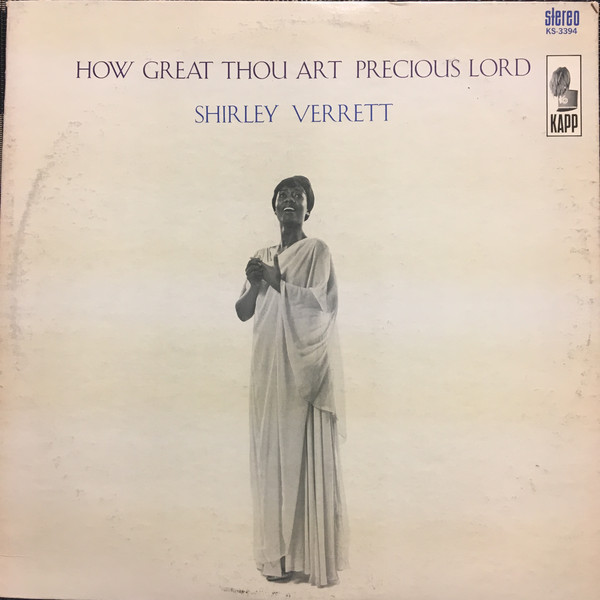Episode 4. Jessye and Her Forebears (Needle Drop I)
SOCIAL SHARE
SUBSCRIPTION PLATFORM
Due to a last minute change of plans, I have decided to bring you the first in what I hope will be a series of episodes devoted to excerpts from LP recordings in my collection which have either never been reissued on CD or have had only limited availability. This first episode includes a tribute to the late Jessye Norman, with a nod to some of the great African American singers who paved the way for her in her career. In addition, my special guest the theatre scholar David Savran speaks about the significance of her collaborations with director Robert Wilson. Other singers heard include Gérard Souzay, Elisabeth Söderström, Dorothy Maynor, Camilla Williams, Martina Arroyo, Shirley Verrett, and Leontyne Price, none of which have received widespread release beyond their initial appearance on LP. I conclude the episode with a special greeting from the balcony of my Air B&B in Napoli, where I am celebrating my birthday.
RECORDINGS FEATURED ON THIS EPISODE
Gérard Souzay. Franz Schubert: Die Taubenpost, D.957/14. Dalton Baldwin, piano. From Gérard Souzay singt Schubert 838 124 (ca. 1967). I have stated repeatedly how Souzay is one of my favorite interpreters of art song. If one is going to be completely honest about his work, one would have to acknowledge that some of his late singing is distinctly under-par (I myself remember hearing a shocking poor late recital in Milwaukee), and his forays into opera, except for his extroardinary Golaud in Pelléas et Mélisande don’t pack the needed punch. He was on the record as being dissatisfied with his recordings from the 1950s (before he signed with the Philips label), but I find those a perfect balance of all his finest qualities: honeyed legato, textual awareness, tonal beauty, all allayed to his intense need to tell the story. Because this is my first Needle Drop episode and because I just picked this recording up at the flea market a couple weeks ago just blocks from my house, and because he is at his very best in Schubert, I chose his recording of Die Taubenpost from the Schwanengesang compilation to represent him here. More will be said about this great artist in future episodes. And of course you can also hear him every week singing the closing music to every podcast episode!
Elisabeth Söderström. Anonymous: Neapolitan Mourning Song, arr. Claude Génetay. Ulf Björlin conducting the Symfoniorkestern Norrköping. EMI 4E 061-34788 (1973). This is quite an extraordinary and rather rare recording. As far as I know, it never received any release other than on this LP from Swedish EMI. The repertoire is quite eclectic and ambitious and includes the great Swedish soprano’s versions of extended scenes from two of her greatest roles: Tatyana in Eugene Onegin (the so-called Letter Scene) and the Gräfin in Capriccio (here she sings the great final scene with such purity of intention and passion that one is completely swept away. Also included are the Divinités du Styx from Gluck’s Alceste, Cherubino’s Non so più and the so-called Air de Lia (L’année en vain chasse l’année) from Debussy’s early Massenet-esque cantata L’Enfant prodigue (which garnered its composer the Prix de Rome in 1884), as well as the great Swedish composer Ture Rangström‘s short orchestral cycle Hennes Ord on texts by the great Swedish author and poet Bo Bergman.
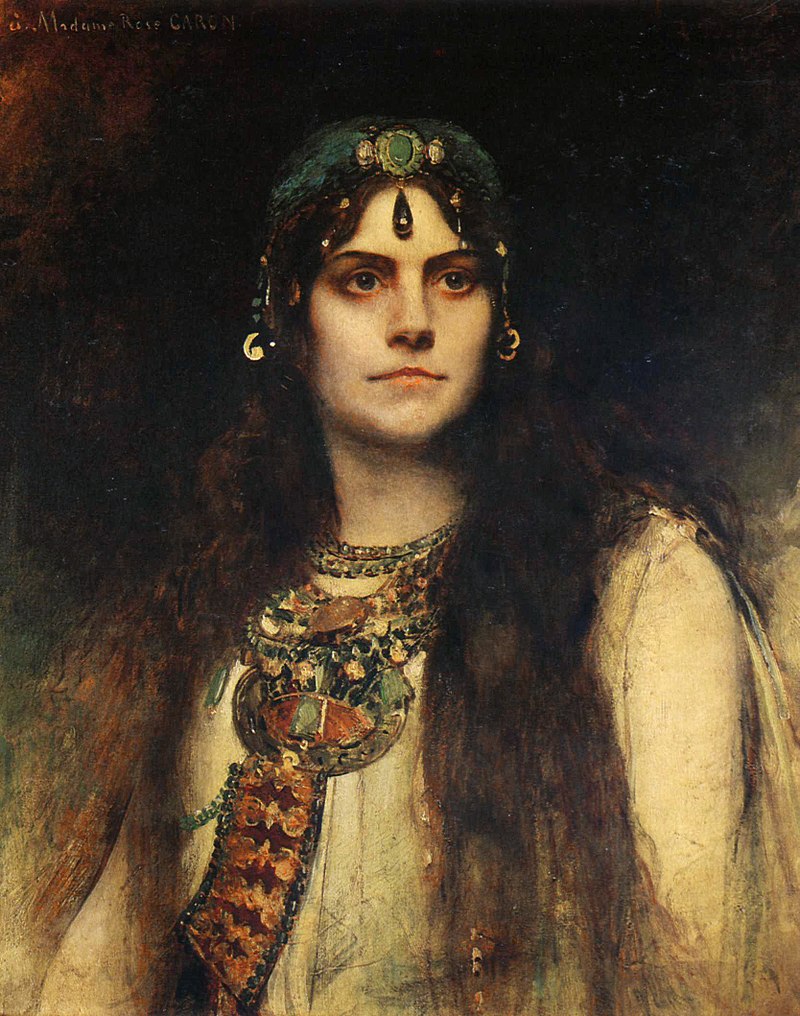
In this portrait by Léon Bonnat she is depicted in the title role of Ernest Reyer’s Salammbo.
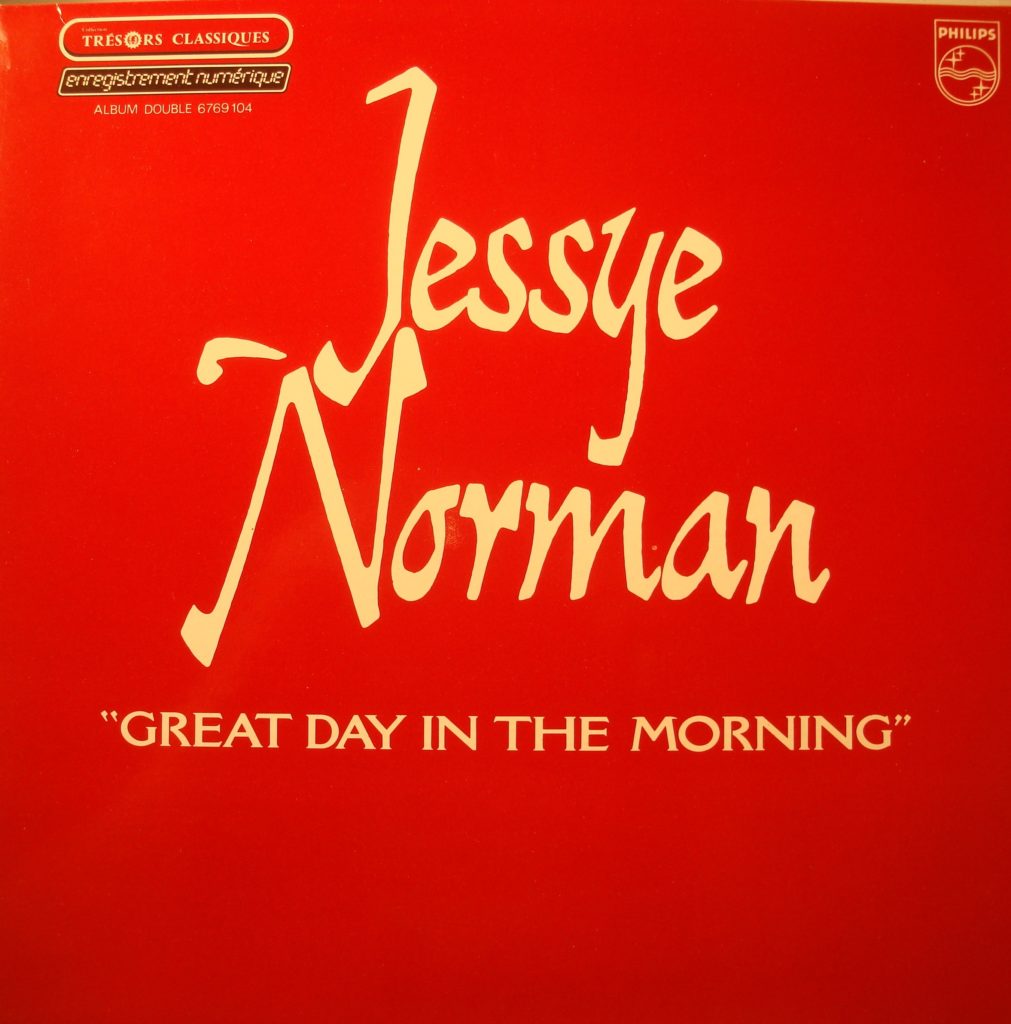
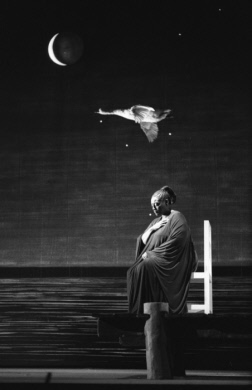
Great Day in the Morning, Paris 1982.
Photo © Colette Masson / Roger-Viollet
Jessye Norman. Four excerpts from Great Day in the Morning. 1. I Believe I’ll Go Back Home (duet with LaVerne Williams); 2. Thought (with Elizabeth Cooper, piano); 3. Calvary (a cappella); 4. Amazing Grace (a cappella). Philips 6769 104 (1982). In the episode, I interview the distinguished theater scholar David Savran about the (relatively unexamined) importance of Jessye Norman’s collaborations with the director Robert Wilson. This recording captures their first collaboration. Here is a page from Wilson’s website that pays tribute to the late diva. And here is a link to the article in the LA Times that David talks about in our interview which foregrounds the importance of the Great Day in the Morning project. Other musicians involved in this project, in addition to those listed above, were soprano Shezwae Powell; mezzo-soprano Nancy Ticotin; tenors Jimmy Chambers and Wayne Williams; baritones Vernon Nesbeth, Ira Spaulding, and Richard Taylor; bass Thomas Pollard, cellist Renaud Fontanarosa, flautist Benoît Fromange, percussionist Wieslaw Janacek, and saxophonist Steve Potts, saxophone, all conducted by Willis Patterson. The Winterreise to which Wilson, Savran, and the LA Times article reference was broadcast on European television but is currently unavailable on any platform. Here is a link to the 1982 item in the New York Times which announces the cancellation of Great Day in the Morning at BAM.
Dorothy Maynor. George Frideric Handel: O Sleep, why dost thou leave me? (Semele) With Serge Koussevitzky conducting the Boston Symphony Orchestra (recorded 1939). From The Art of Dorothy Maynor, RCA LM-3086 (1969). Dorothy Maynor’s importance as an African American concert artist of the first rank cannot be underestimated. Just as Marian Anderson helped create a context in which artists of color could be heard and celebrated in the United States, so did Maynor. This article gives a wonderful overview of her career and contributions. I promise to feature more of Maynor’s work in future episodes.
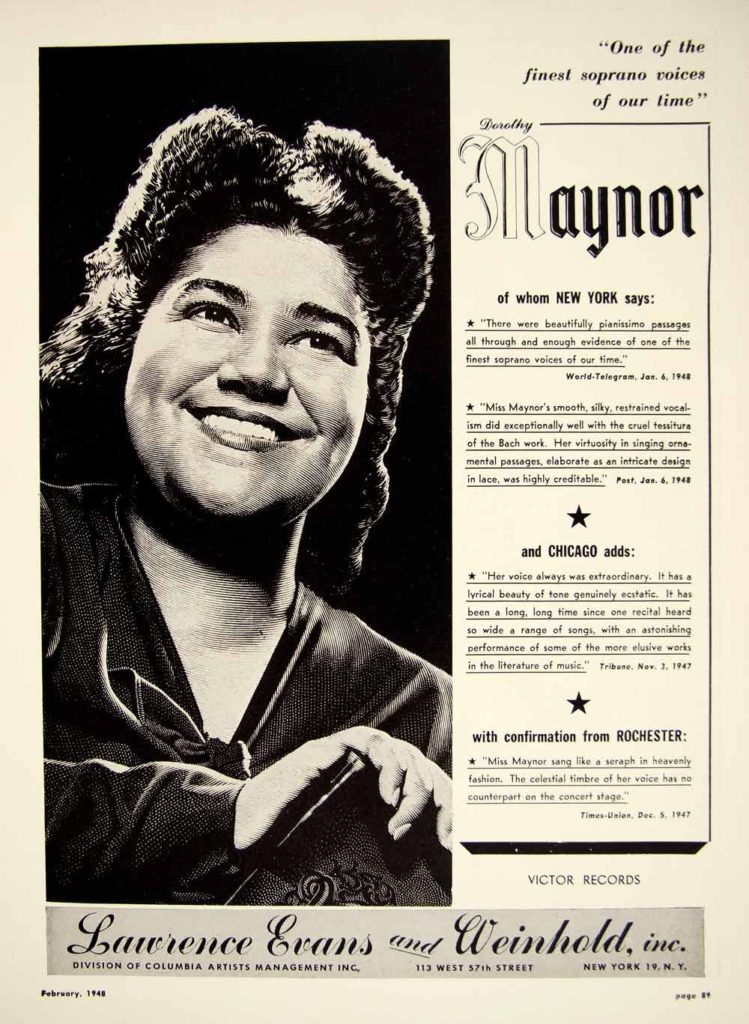
Camilla Williams. Charles Koechlin: Si tu le veux. With Borislav Bazala, piano. From A Camilla Williams Recital, MGM Records E 140 (1952). Camilla Williams is probably best remembered today for her performance of Bess in the 1951 Goddard Lieberson-produced Columbia Records recording of Porgy and Bess, which also featured Lawrence Winters as Porgy , Inez Matthews as Serena and June McMechen as Clara, conducted by Lehman Engel. Though the recording perpetuated the tradition of heavy cuts to the original structure preferred by George Gershwin, it remains a landmark document. I will feature more on Camilla Williams in next week’s episode, the first of a three-part interview with soprano Janet Williams, one of Ms. Williams’s most successful students.
Martina Arroyo. I Couldn’t Hear Nobody Pray (traditional spiritual). With the Choirs of The Harlem School of the Arts and St. James Presbyterian Church, NYC conducted by Dorothy Maynor. From There’s A Meeting Here Tonight, Angel Records S-36072 (1974). Martina Arroyo surely numbers among the most important spinto sopranos at the Metropolitan Opera in the 1960s through the 1980s. Her Verdi portrayals from Elena in Vespri siciliani to Elvira in Ernani, from the title role in Aida to the Leonoras in Trovatore and Forza, from Amelia in Ballo to, most surprisingly, Lady Macbeth, are justly celebrated. She also performed both soprano roles in Puccini’s Turandot as well as the the title role in Madama Butterfly and Elsa in Wagner’s Lohengrin. Her Donna Anna in Mozart’s Don Giovanni was twice-recorded and is another of her most significant parts. She was also a distinguished recitalist and in 1963 created the solo in Samuel Barber‘s Andromache’s Farewell at the New York Philharmonic’s inaugural season at Lincoln Center. Though it was often remarked that she had a relatively placid stage demeanor, hers is an enormously beautiful and satisfying voice and the live performances of hers that I have sampled are remarkably consistent. In 2010, she was an NEA Opera Honors recipient. Here is an interview with her from that time. (P.S. In her early days when she was beginning her career in German-speaking Europe, she participated in and recorded the 1965 version of Karlheinz Stockhausen’s Momente.)
Shirley Verrett. Charles H. Gabriel, Civilla D. Martin: His Eye Is On the Sparrow (arranged and adapted Herb Geller). With Peter Daniels, piano. From How Great Thou Art Precious Lord, Kapp Records, KS-3394 (1964). Shirley Verrett numbers among my very favorite singers of all time. Because time is running short, I will limit myself to one audio posting. In my recent interview with Nicholas Tamagna we spoke of the role of Ruggero in Handel’s Alcina. Here is a recording from the 1969 Edinburgh in which La Verrett, accompanied by Warren Wilson, performs the most sublime of Ruggero’s arias, Mi lusinga il dolce affetto. It is true that Verrett was an inconsistent singer, but this was allied in great part to serious allergies and other health problems. At her best, she could sing nearly anything, and was a true mistress of bel canto worthy of her greatest predecessors. And yes, I do include Callas in that list. In fact, I think that Verrett was the greatest exemplar of the role of Norma since Maria. She is deserving of a full episode, and will be receiving one in the near future.
Leontyne Price. Franz Schubert: Die Allmacht. With David Garvey, piano. From Lieder by Schubert and Richard Strauss, Angel Records, SZ-37631 (1979). Of all the singers referenced today, it is probably the last one with whom I have the most complicated relationship. Leontyne’s was the first operatic voice I ever heard when my father invited up to his study to listen to a Saturday afternoon Live from the Met broadcast of Leontyne singing the title role of Aida. She was my gateway to opera. For that I remain eternally grateful. Since then I have become rather more ambivalent about much of her singing (please don’t shoot me!), though, as with the late Ms. Norman, I remain an admirer in so many ways. This recording of songs by Schubert and Strauss on the Angel Records label has never been reissued on CD (except for a very obscure Schubert box set on French EMI of Side One only). Interestingly, there are four extent Lieder recitals from the Salzburg Festival from around this time available on YouTube that feature live recordings of much of this repertoire, and much, much more. Here are the links, if you are interested in hearing them: 1975 (includes Beethoven’s Ah, Perfido!, a slew of Strauss Lieder and songs by Respighi and Poulenc); 1977 (includes Schubert and Strauss Lieder, songs of Duparc, and spirituals arranged by Margaret Bonds); and 1981 (includes the Brahms Zigeunerlieder; songs by Rachmaninov, Debussy, and Barber; and spirituals); and 1984 (including opera arias, Schubert and Liszt songs, as well as assorted mélodies and American art songs). It’s a great opportunity to hear her in some unusual repertoire and in relatively good behavior musically and vocally.
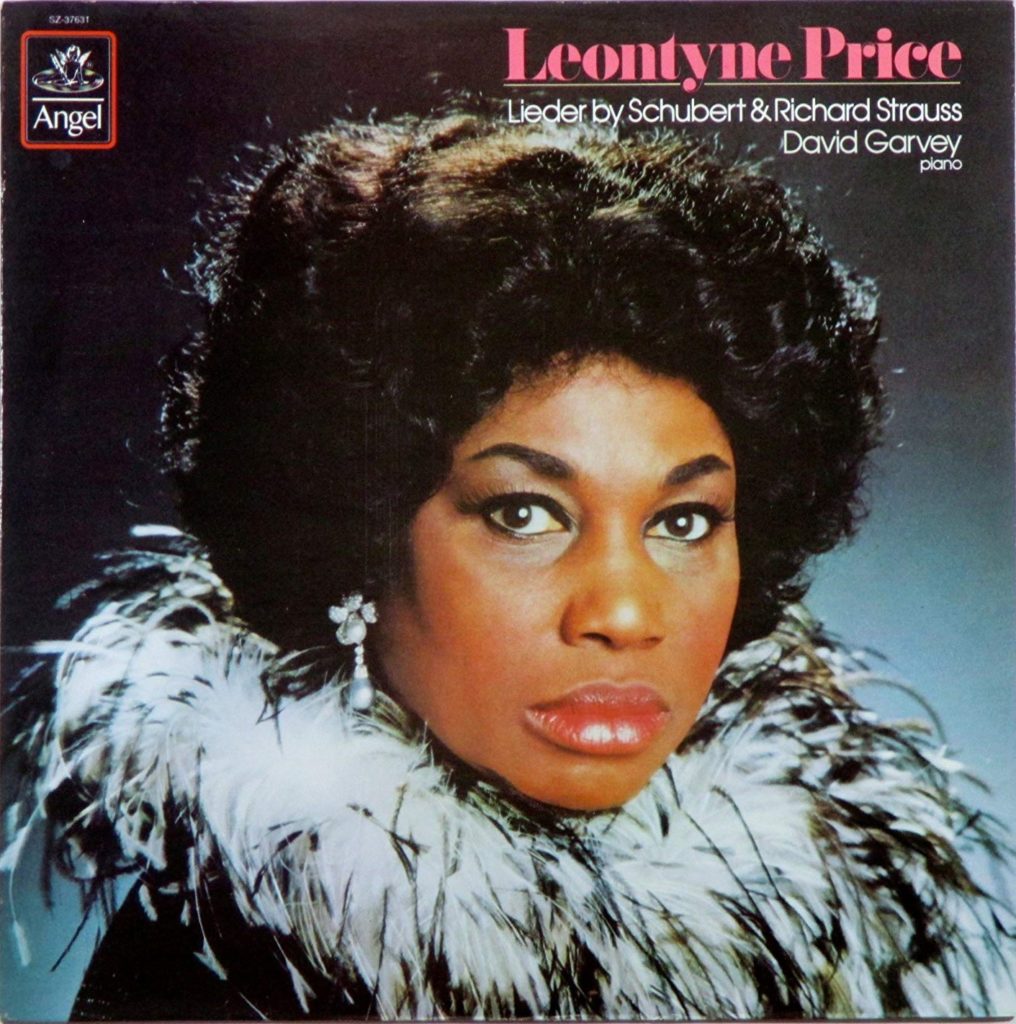
If time had allowed, I would have paid tribute to even more great African American singers from the past than I had time to feature on this episode. I think I will take a rain check on that, however, with the promise that I will do at least two episodes in February for Black History Month.

